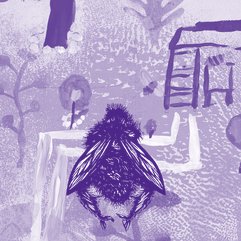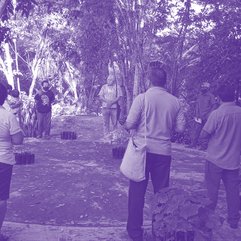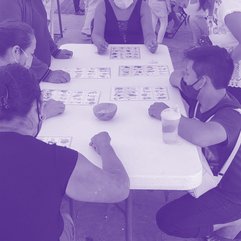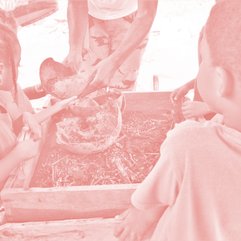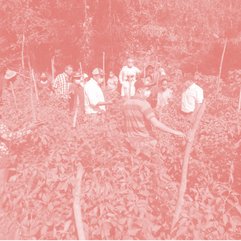Territories of Knowledge
In this partnership, Spore supports the project Territories of Knowledge; a field-research by artist, filmmaker and researcher Barbara Marcel and transmedia journalist and researcher Camila Nobrega.
12.00-12.00
Save the Date
all ages welcome
multilingual

During a research residency in the Brazilian state of Pará, followed by further research in Germany, the project begins by investigating the preparation processes of different local and international civil society groups for hosting the UN Climate Conference COP30, which will take place in 2025 for the first time in the Amazon region. The project takes as its starting point the COP, its possibilities for encounters for situated learning and the promotion of critical debates of global repercussions, in order to reflect collectively on issues such as socio-environmental and climate justice.
The Amazon is a key territory in the history of colonial processes in the formation of a modern world system based on the exploitation of naturecultures, subjugating peoples and species that for centuries have co-cultivated codependent relationships, especially in the global south. Brazil is the country with the largest area of the Amazon, equivalent to around 60% of the largest tropical forest on the planet. The importance of respecting the territories and peoples in the region, as well as the need of unveiling transnational power structures that reproduce colonialities, is key to the debate on global warming and climate change.
For all these reasons, the research follows the preparations for COP30 and international debates about practices for possible futures of the planet with special attention to contemporary challenges, including conflicts resulting from the implementation of more contemporary developmentalist megaprojects, illegal logging, mining, land grabbing, among other transnational processes.
Based on their own methods of artistic research and investigative journalism, the researchers aim to contribute to spaces for knowledge exchange, starting from the notions of territory, land, water and conviviality – four words that carry different meanings in different contexts. Therefore, the idea is to give visibility to ongoing processes in the local context and create new spaces beyond borders between Brazil and Germany, revealing conflicts but also opening up possibilities for collaboration based on the understanding and respect for different positionalities. The research will be conducted in dialogue with Indigenous, quilombolas, riverside and other Amazonian communities, especially networks and collectives of artists, journalists, researchers and environmentalists in the region, as well as groups working transnationally unveiling past and ongoing colonialities.




